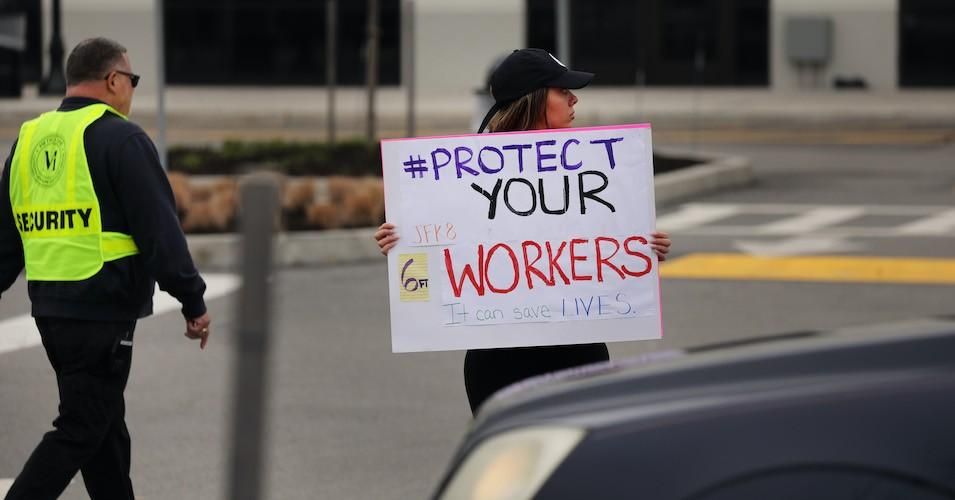
This morning, the Labor Department's Bureau of Labor Statistics reported on jobs and wages for September. I have to chime in on this because the mainstream media coverage is so awful. The coverage makes it sound as if the economy is bounding ahead, when in fact we're in the first stages of a major slowdown.
Big corporations continue to use inflation as a cover to raise their prices and increase their profit margins.
The most important takeaway is that workers continued to become poorer in September, as average hourly earnings again failed to keep up with increases in the costs of living. Hourly earnings climbed 5 percent from a year earlier, while prices rose 6.3 percent.
As wages continue to fall behind prices, wages continue to reduce inflationary pressures.
You'd think this would lessen the likelihood of another Fed interest-rate hike – which makes it more costly for consumers to borrow, reducing their purchasing power even further. But Fed officials continue to fixate on wage growth rather than the major forces pushing up prices—especially corporate profits.
"Continued strong wage increases will likely put further upward pressure on service price inflation," Lisa D. Cook, a Fed governor, said in a speech on Thursday.
Another Fed governor, Philip Jefferson, said in a speech this week, "In a market with more job openings than workers, the competition to fill vacancies is leading to rapid wage gains now, and the resulting salary compression may lead to further upward wage pressures in the future,"
What can they be thinking? A new report shows that unfilled job offerings fell sharply in August. As Goldman Sachs puts it, almost half of the gap between jobs and workers has been eliminated over the past few months.
Filings for unemployment benefits last week also rose. Companies, including Walmart and Amazon, have announced slowdowns in hiring, while others, including FedEx, have frozen hiring altogether.
Other signs of a slowdown appear in the Bureau's job numbers for September.
Employers added 263,000 jobs last month on a seasonally adjusted basis—down from 315,000 in August. The unemployment rate also fell.
Meanwhile, big corporations continue to use inflation as a cover to raise their prices and increase their profit margins.
As William Meaney, the CEO of Iron Mountain (a data storage and management company with a current market capitalization of $12 billion) told Wall Street analysts in late September, high levels of inflation helped the company increase its margins—and that for that reason he had long been "doing my inflation dance praying for inflation." A few years before, Meaney explained "I pray for inflation every day I come to work because … our top line is really driven by inflation. … Every point of inflation expands our margins."
The Fed's rate hikes will eventually hit corporate profits because corporations depend on workers (who are also consumers) to buy their goods and services. But by the time the rate hikes hit profits, jobs and wages will likely have been crushed in a recession.
Beware.
This content originally appeared on Common Dreams - Breaking News & Views for the Progressive Community and was authored by Robert Reich.